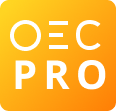Overview In 2022, Indonesia was the number 16 economy in the world in terms of GDP (current US$), the number 26 in total exports, the number 27 in total imports, the number 114 economy in terms of GDP per capita (current US$) and the number 67 most complex economy according to the Economic Complexity Index (ECI) .
Exports The top exports of Indonesia are Coal Briquettes ($50.8B), Palm Oil ($28.7B), Ferroalloys ($13.7B), Petroleum Gas ($11.8B), and Copper Ore ($8.89B), exporting mostly to China ($67.7B), United States ($31.6B), Japan ($26.6B), India ($25.3B), and Malaysia ($15.6B).
In 2022, Indonesia was the world's biggest exporter of Palm Oil ($28.7B), Ferroalloys ($13.7B), Lignite ($8.29B), Stearic Acid ($6.84B), and Nickel Mattes ($6.27B)
Imports The top imports of Indonesia are Refined Petroleum ($23.2B), Crude Petroleum ($10.1B), Petroleum Gas ($4.92B), Motor vehicles; parts and accessories (8701 to 8705) ($4.19B), and Broadcasting Equipment ($4.01B), importing mostly from China ($71.3B), Singapore ($22.5B), Japan ($14.9B), Malaysia ($12.5B), and Thailand ($10.4B).
In 2022, Indonesia was the world's biggest importer of Soybean Meal ($2.92B), Raw Sugar ($2.37B), Other Large Iron Pipes ($591M), Industrial Furnaces ($474M), and Steam Boilers ($427M)
Location Indonesia borders Timor-Leste, Malaysia, and Papua New Guinea by land and Australia, India, Palau, Philippines, Singapore, Thailand, Vietnam, and Christmas Island by sea.




